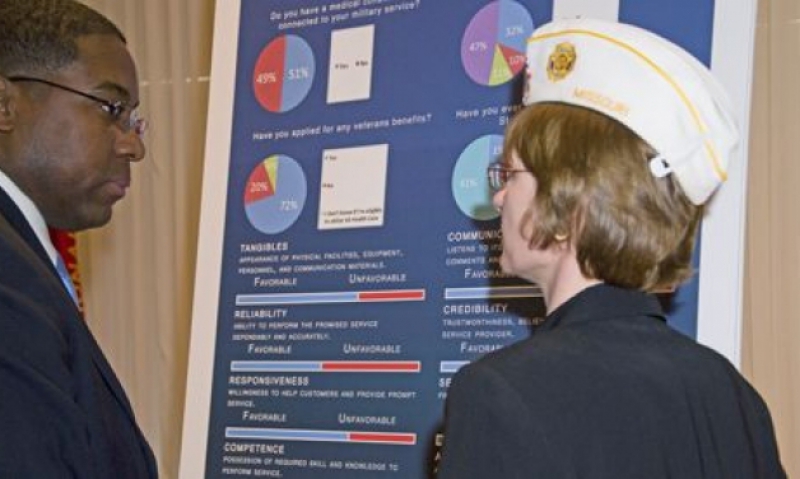
American Legion Legislative Director Ian de Planque: Women veterans needs to be asked, 'How can VA serve you to thank you for your service?’
At a July 14 congressional hearing, The American Legion provided written and oral statements addressing positions on pending legislation before the House Committee on Veterans’ Affairs Subcommittee on Health.
Legislation highlighted in the Legion’s written statements included the:
• Medal of Honor Priority Care Act
• Veterans Dog Training Therapy Act
• Classified Veterans Access to Care Act
• Newborn Care Improvement Act
• Demanding Accountability for Veterans Act of 2015
Ian de Planque, director of the Legion’s Legislative Division, conveyed the Legion’s position on key pieces of pending legislation to the committee, including the Women Veterans Access to Quality Care Act of 2015 and the Build a Better VA Act.
While there were many noteworthy pieces of legislation up for discussion, de Planque said he honed in on the bills that address the critical needs of veterans that The American Legion has strived to raise awareness of for several years.
Making note of the fact that women are currently the fastest growing demographic serving in the military, de Planque mentioned some of tools The American Legion uses to gauge the needs of this rapidly growing demographic. Referring to the results found during a women veterans survey, he incorporated the Legion’s findings from the survey into his testimony and discussed a special dedicated focus of the System Worth Saving Report that assesses the experiences of women using the Department of Veterans Affairs health-care system.
“We’ve learned that women veterans often don’t self identify as veterans, and that VA staff often don’t see women as veterans,” de Planque said. “Women veterans don’t need to be asked ‘How did your husband serve in the military?’ They need to be asked ‘How can VA serve you to thank you for your service?’”
If passed, the legislation will perpetuate a cycle of consistency by establishing standards for all facilities. The reporting mechanisms in the bill will help all stakeholders keep apprised of VA progress on better integrating women’s health care.
“More transparency leads to better communication between stakeholders,” de Planque said. “The reporting mechanisms in the bill will help all stakeholders keep apprised of VA progress on better integrating women’s health care. More transparency leads to better communication between stakeholders.”
de Planque went on the express his hopes that the legislation will help close gaps and ensure all veterans are served with equal attention to their care.
The American Legion is also glad to see attention being given to serious reform of VA large-scale construction projects. The Construction Reform Act attempts to ensure competent management of serious, large-scale construction projects, such as major hospitals, so that those projects don’t spiral out of control as they have in years past.
The American Legion believes VA should be allowed to focus on what they do well – providing care to veterans – and that large-scale construction management should go to organizations that are dedicated solely to the mission of construction, said de Planque. “Keep VA in the business of treating patients,” he added.
The Legion’s support of the Build a Better VA Act also was affirmed by de Planque.
Last year, the uncertainty surrounding leases for 27 community-based outpatient clinics created doubt, concern, and fear of lost coverage for hundreds of thousands of veterans until a short term solution was worked into the Veterans Access to Care, Choice and Accountability Act.
“We are happy to see attention is being given to fixing the long standing problem with Congressional Budget Office scoring of leases for community-based outreach clinics,” de Planque said. “The American Legion has been involved in working towards a solution since the beginning. We knew last year that the 27 leases only represented a temporary reprieve; we would still have to find a long-term fix.”
The American Legion believes this legislation can be that fix.
- Legislative

